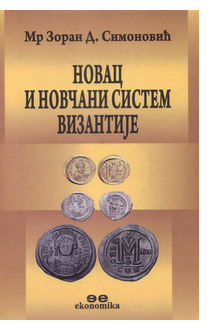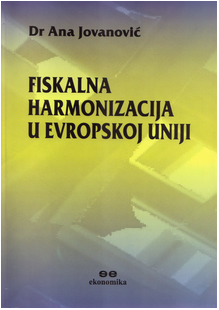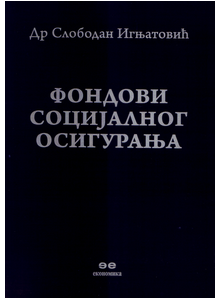Library
COMPETITION PROTECTION ROLE POLICY IN MANAGING DETERMINANTS OF COMPETITIVE ADVANTAGES OF ENTERPRISES
Competition policy is a demanding and highly complex segment of economic policy by which economic systems seek to achieve a delicate balance of objectives. The benefit of consumers and society as a whole, balancing between the opposing interests of powerful and weak economic entities, as well as the need to ensure fair market conditions for all market participants and preserve a competitive business environment are just some of the requirements that are posed to the creators of this segment of economic policy. That is why the problems of drafting the competition protection policy with unlimited intensity have attracted the attention of theoreticians and practitioners for many years.
![]()
MONEY AND FINANCIAL SYSTEM
 The presence of Byzantine coins can be traced back to the time of Constantine I the Great, over Theodosius I, to Anastasia I. While working on this book, I paid special attention to money and the money system which was set up Anastasias monetary reform of 498 year. The period that I have chosen to deal comprises one hundred and twenty years of continuous circulation of money. This is a relatively long period that gives enough space for a comprehensive survey.
The presence of Byzantine coins can be traced back to the time of Constantine I the Great, over Theodosius I, to Anastasia I. While working on this book, I paid special attention to money and the money system which was set up Anastasias monetary reform of 498 year. The period that I have chosen to deal comprises one hundred and twenty years of continuous circulation of money. This is a relatively long period that gives enough space for a comprehensive survey.
Our research money and the monetary system are reflected primarily in the observation of the economic life of the country. Cash and cash systems provide the fullest picture of monetary and fiscal policies of the Byzantine rulers in the period since the end V to the early seventh century. In particular, we point out that there are a solid number of preserved specimens of gold, silver and bronze coins of this period. This allowed the study and consideration, and monetary and fiscal policy.
The main feature of monetary and fiscal policies of the Byzantine period, the remarkable stability of the golden solidus. In the interest of the state was firmly maintains its stability. On the other hand there is the constant presence of latent inflation or bronze coins. Silver coin is minted rare, mainly in the western parts of the country and in Italy and North Africa. The measures taken by the state were aimed at protecting the quality of the golden solidus at the expense of the Bronze FOLIS and its fractions. The state is this policy successfully and achieved during this entire period.
Finally, we wish to point out that the present-day Serbia entered the composition prefecture of Illyricum in this period. Penetration and settlement of Slavs in central Illyricum occurred between 612 and 615 year. Act of settlement of Slavs in this region there was a complete cessation of circulation of money in the Byzantine cities, such as Nis and Caricin Grad.

FISCAL HARMONIZATION IN THE EUROPEAN UNION
 Fiscal harmonization, as one of the most controversial issues to current times and the future course of European integration, is bounded by the basic principles on which the European Union is founded: the principles of competition and the principle of subsidiary. These principles, however, compared to fiscal harmonization, have different implications: while the principle of competition as a factor of efficient allocation of factors of production, with tax neutrality and economic efficiency and lead to fiscal harmonization, the principle of subsidiary allows fiscal competition, since the Treaty of establishing a European Union tax issues left to the jurisdiction of the almost total member states. Fiscal harmonization in the most direct way is the political and economic implications of the EU member states, as it delves into the question of their tax sovereignty. As a tax policy only remaining macroeconomic instrument in the sovereign jurisdiction of EU Member States, resistance to further the process of fiscal harmonization, particularly in the area of direct taxes, are extremely strong. Therefore the prospect of fiscal harmonization in the European Union to be determined and focused to achieve broader economic and political goals, the elimination of fiscal barriers to the functioning of the internal market and strengthening the competitive position of the EU on the global scale.
Fiscal harmonization, as one of the most controversial issues to current times and the future course of European integration, is bounded by the basic principles on which the European Union is founded: the principles of competition and the principle of subsidiary. These principles, however, compared to fiscal harmonization, have different implications: while the principle of competition as a factor of efficient allocation of factors of production, with tax neutrality and economic efficiency and lead to fiscal harmonization, the principle of subsidiary allows fiscal competition, since the Treaty of establishing a European Union tax issues left to the jurisdiction of the almost total member states. Fiscal harmonization in the most direct way is the political and economic implications of the EU member states, as it delves into the question of their tax sovereignty. As a tax policy only remaining macroeconomic instrument in the sovereign jurisdiction of EU Member States, resistance to further the process of fiscal harmonization, particularly in the area of direct taxes, are extremely strong. Therefore the prospect of fiscal harmonization in the European Union to be determined and focused to achieve broader economic and political goals, the elimination of fiscal barriers to the functioning of the internal market and strengthening the competitive position of the EU on the global scale.
SOCIAL SECURITY FUNDS


 The organization and functioning of social security (pension, disability and health insurance) are the subject of discussion and comprehensive analysis of the experts in this field in almost all countries of the world. The expenses for social security, primarily pension expenses have become a major burden public finances of many countries, both developed and undeveloped.
The organization and functioning of social security (pension, disability and health insurance) are the subject of discussion and comprehensive analysis of the experts in this field in almost all countries of the world. The expenses for social security, primarily pension expenses have become a major burden public finances of many countries, both developed and undeveloped.